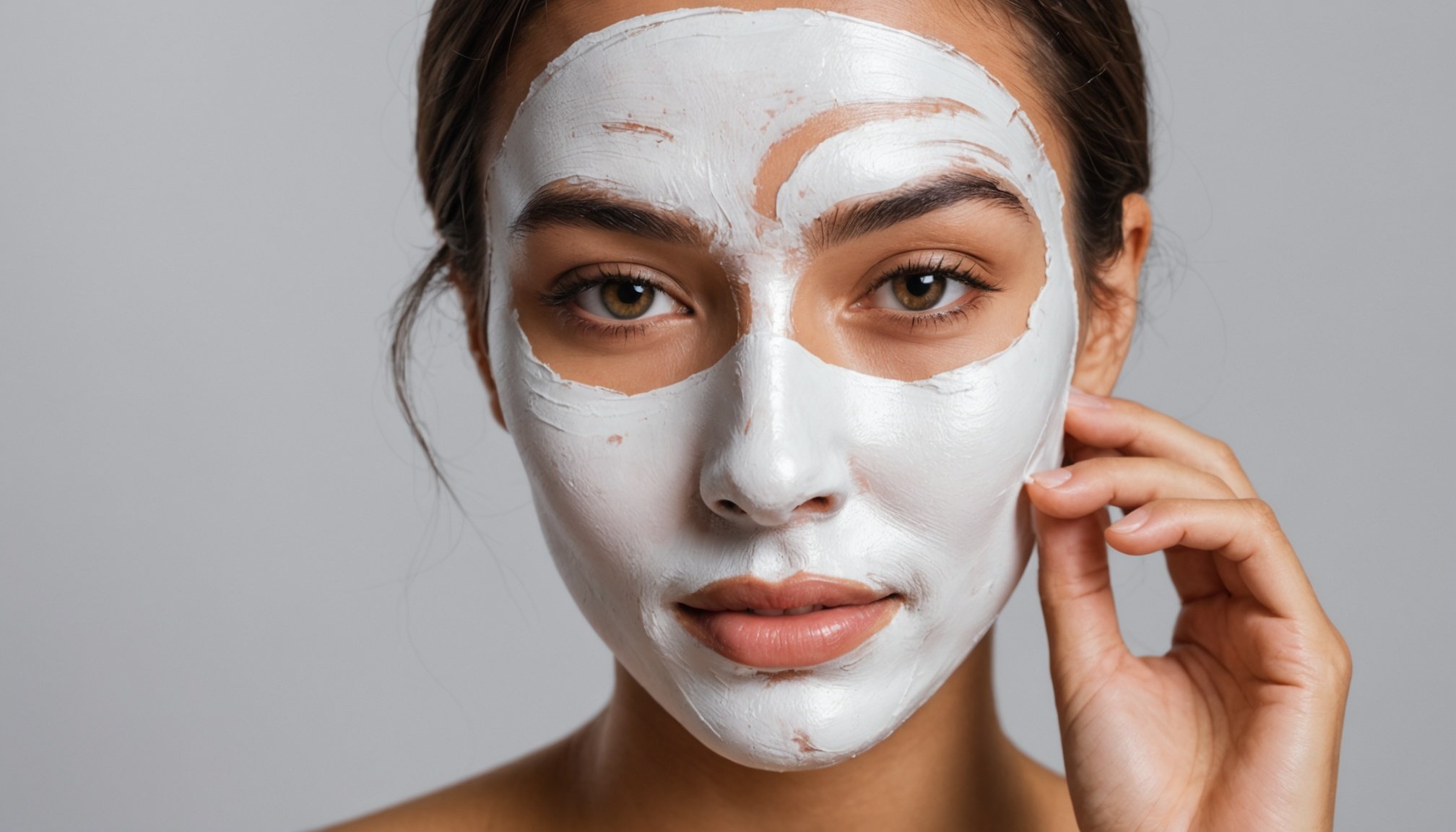Understanding Moisturizing Face Masks
When it comes to skin hydration, moisturizing face masks serve as potent allies in maintaining a healthy complexion. They work by infusing moisture into the skin, aiding in the preservation of its natural barrier. The benefits of hydration are not only evident in maintaining plumpness but also in enhancing elasticity and texture.
There are various types of moisturizing face masks available to cater to different skins. Sheet masks, known for their convenience, are soaked in a nurturing serum that directly delivers hydration. Clay masks, on the other hand, are excellent for those with oily skin as they balance oil production while still moisturizing.
This might interest you : Elevate your evening: mastering the art of pairing an embellished clutch with your formal gown
Regular use of these masks can drastically improve skin health. By making these a part of your routine, you can achieve a glow that signifies strong, well-hydrated skin. With consistent application, the benefits extend beyond just immediate moisture, with many users noting an improvement in overall skin texture and tone.
Exploring different masks can lead you to find the most suitable option. Experimentation is key to finding the right match for your unique skincare needs, ensuring optimal results.
Have you seen this : Essential hair care solutions for maintaining gorgeous curls in humid uk conditions
Key Ingredients in Moisturizing Face Masks
Understanding the composition of moisturizing face masks can significantly elevate your skincare routine. Among the most noteworthy essential ingredients is hyaluronic acid, a powerful hydrator.
Hyaluronic Acid
Hyaluronic acid plays a crucial role in skin hydration by holding up to 1000 times its weight in water. Derived from natural sources, this compound is stable in various formulations and goes beyond just moisture retention. It also aids in reducing fine lines and enhancing skin elasticity. When included in face masks, it ensures deep hydration and rejuvenation.
Essential Oils
Incorporating essential oils, such as lavender and chamomile, many masks offer additional skin benefits like calming irritation and enhancing hydration. However, dilution is essential to prevent potential sensitivities. Using a carrier oil can mitigate these risks, but awareness of allergy considerations should guide their use.
Natural Extracts
Natural extracts, like aloe vera and green tea, are commonly used in these masks for their skin-nourishing properties. They not only hydrate but also soothe and revitalise the skin. The sourcing and processing of these extracts impact their effectiveness and potential sensitivity. Selecting masks featuring responsibly sourced extracts can optimise hydration benefits while minimising irritation potential.
Considerations for Skin Type
Choosing the right moisturizing face masks involves understanding your unique skin type suitability. Tailoring your approach based on whether your skin is oily, dry, sensitive, or combination skin can maximize benefits.
For oily skin, masks containing clay might balance oil production while maintaining skin hydration. Dry skin, in contrast, benefits from rich, creamy formulations fortified with essential ingredients like hyaluronic acid. Sensitive skin requires gentle, hypoallergenic formulations. Patch testing is crucial when trying new products to avoid adverse reactions. It involves applying a small amount of the product to a discreet skin area to check for any irritation potential.
Combination skin needs a balanced approach, perhaps using different products on various face regions. Monitoring how your skin responds can help refine your personalized skincare regimen.
Recommendations for hydrating masks might include options with botanical extracts for their skin-nourishing properties. Additionally, consider masks specifically designed for your skin type—these often have ingredients selected for their compatibility and effectiveness, especially for sensitive skin. Opting for tailored products and understanding these personalized skincare considerations can lead to healthier, more resilient skin.
Tips for Choosing the Right Moisturizing Face Mask
Selecting the ideal moisturizing face mask can significantly impact your skincare routine. Understanding ingredient labels is essential for effective product selection. When deciphering labels, focus on active components like hyaluronic acid and natural extracts. Avoid harmful additives such as parabens and sulfates, which may disrupt skin balance. Being aware of these details helps you make informed choices, enhancing your mask’s benefits.
Reading Ingredients Labels
To choose the best moisturizing face mask, start by reviewing its ingredients. Recognising essential and harmful components is crucial. Look for masks that highlight skin hydrating ingredients while steering clear of potential irritants. Understanding product claims enables you to discern effective formulations from mere marketing.
Product Recommendations
Considering consumer feedback, some popular masks stand out for their efficient skin hydration. Brands that offer a wide range of formulations for different skin types often provide good value for money. While exploring options, assess each mask’s ingredients and benefits closely to determine the right fit for your needs.
Application Tips
For optimal results, apply moisturizing face masks as per the instructions. Use them consistently and follow up with suitable aftercare products to lock in moisture. This combined approach will maximise hydration effectiveness and enhance your skincare regimen.
Potential Allergens and Irritants
Choosing the right moisturizing face mask involves being mindful of allergy considerations and irritation potential. Common allergens such as fragrances, preservatives, and even certain essential oils can cause issues for those with sensitive skin. Alternatives like fragrance-free and hypoallergenic formulas are advisable.
Recognising signs of irritation is crucial. If you experience redness, itching, or burning, it’s best to discontinue use immediately and consult a dermatologist. You should conduct a patch test before fully applying a new product, particularly on sensitive skin, to spot any negative reactions.
Safe use for allergic individuals often includes:
- Opting for masks with fewer ingredients that are less likely to cause irritation.
- Sticking to products specifically labeled for sensitive skin.
- Avoiding masks with alcohol or harsh chemicals that can exacerbate issues.
Understanding these aspects ensures a more confident and effective approach to using moisturizing face masks. Addressing allergy concerns and observing how your skin responds plays a pivotal role in curating a healthy and suitable skincare regimen, making your experience both safe and beneficial.
Enhancing the Efficacy of Your Mask
Enhancing your skincare routine involves more than just applying moisturizing face masks. It starts with proper skin preparation, essential for maximizing hydration. Begin by thoroughly cleansing your face to remove impurities that could impede the mask’s effectiveness. Gentle exfoliation can follow, helping clear dead skin cells and allowing active ingredients to penetrate deeply.
Pre-Mask Preparation
Before applying your mask, consider incorporating a lightweight serum rich in hyaluronic acid. This step can amplify the hydrating benefits, allowing better absorption of the mask’s nutrients. Applying a serum acts as a primer for the mask, enhancing its effectiveness.
Post-Mask Care
Upon removing the mask, it’s crucial to seal in the moisture. Applying a suitable moisturizer immediately helps lock in hydration and prolongs the benefits. Using nourishing oils can also boost skin suppleness.
For long-term skin care, adopt a consistent routine with hydrating products tailored to your skin type. This ensures a sustained hydration and promotes resilience against external factors. Understanding the importance of following these steps not only enhances the efficacy of your face mask but also supports healthier skin in the long run.











